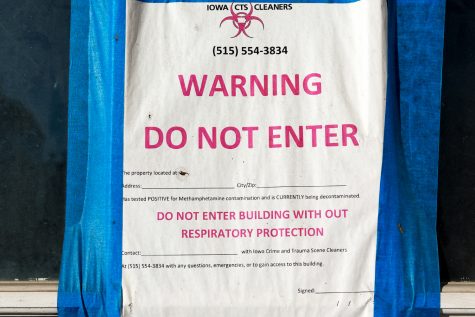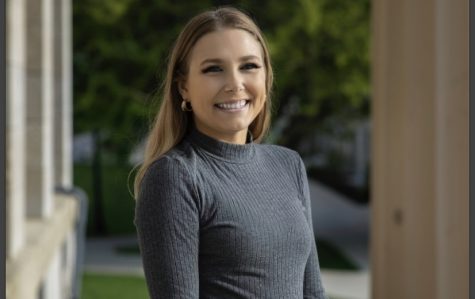College of Liberal Arts & Sciences changes hiring guidelines for some nontenured faculty
The UI recently announced new hiring guidelines for adjunct and visiting faculty in the College of Liberal Arts & Sciences.
The Old Capitol is seen on Thursday, Nov. 30, 2017.
October 10, 2018
The University of Iowa administration has announced new hiring guidelines that will affect the College of Liberal Arts & Sciences’ adjunct and visiting faculty, limiting the number of courses some instructors can teach per semester.
The administration said visiting faculty contracts will be restricted to three years of UI service, according to the Liberal Arts website. Beginning in the fall of 2019, adjunct faculty will only be allowed to teach one course per semester.
In the past, many visiting faculty have been employed for longer than three years because of the college’s interpretation of the policy.
“The college, with approval from the Provost’s Office, had interpreted this [policy] to mean three years means 300 percent,” said Joe Kearney, the interim dean of the Liberal Arts college. “So, if you were working half-time, you could work for six years. The concern was stringing people along on partial appointments where they were not fully employed.”
RELATED: Nontenured faculty demand fair treatment from UI
The UI employs both regular track and fixed-term faculty. Regular track faculty include employees with tenure, meaning they are employed on a permanent basis and can only be terminated for good cause. Fixed-term — or nontenured — faculty serve in a position for a fixed amount of time.
Like many other universities nationwide, the number of nontenured faculty at the UI is growing. Documents from the state Board of Regents shows that in 2014-15, 47.8 percent of the UI’s 3,094 faculty were nontenure track. That grew in 2016-17 to 52.3 percent of the institution’s 3,203 faculty members.
Faye Bartram, a UI visiting European and Soviet Studies faculty member, agreed that nontenured faculty want consistent hiring guidelines among the colleges.
“This would limit exploitation, but right now, it limits our stability as well,” she said.
Though she and others will not know for sure when the three-year clock starts until contracts are released for next semester, Bartram said, she believes it is clear several instructors will not be asked to return to teach at the university next year.
The new hiring guidelines are only one update in the ongoing history of tension between the UI and nontenured faculty. The faculty’s most recent victory occurred after several months of meetings following a sit-in at UI President Bruce Harreld’s office in May.
The group secured benefits in September, including health and dental insurance for visiting faculty working half-time or more at the UI.
RELATED: Despite winning expanded healthcare benefits, UI faculty continues fight for rights
Megan Knight, a UI associate professor of rhetoric, said the administration’s recent, and sudden, announcement serves as its response to the nontenured faculty victory.
“The administration met with us over the summer, and we seemed to be making progress toward some improvements for nontenure-track job conditions,” Knight said. “They abruptly cut off those discussions in August and have refused our attempts to restart the conversation.”
Nontenured faculty protesters disrupted the Sept. 13 regents’ meeting in the IMU to demand that the UI administration and regents listen to their requests, prompting Regent President Mike Richards to call a recess until the protesters left.
University officials have said the classification of the faculty group is unclear, so they are being careful not to interfere should faculty organize.
Kearney said the guidelines make the college consistent with other colleges on campus, he said, and help avoid the potential exploitation of instructors.
“The overall goal here is to make this a good working environment and provide top-flight education to our students,” he said. “We’re trying to do those two things as best we can.”





















